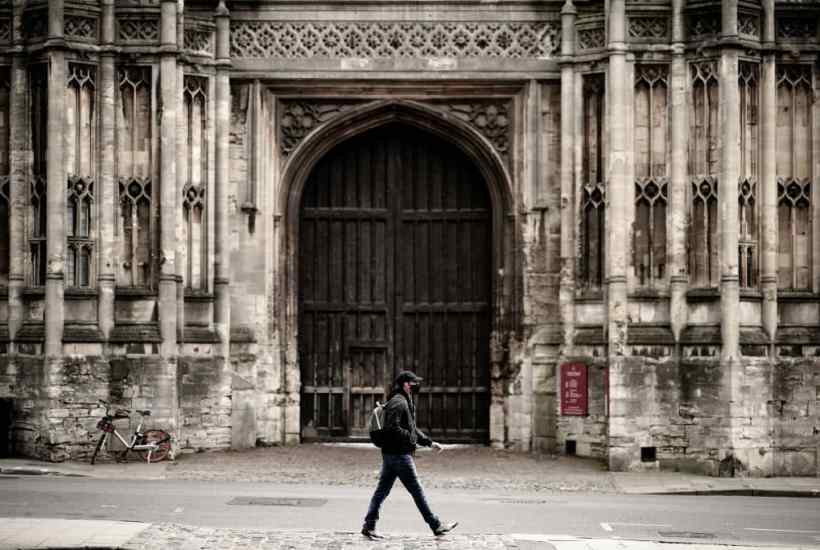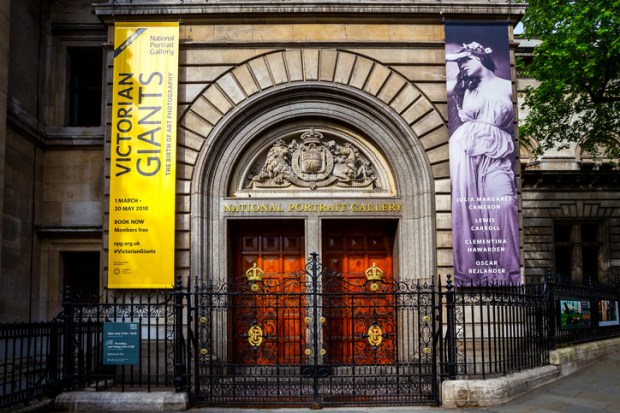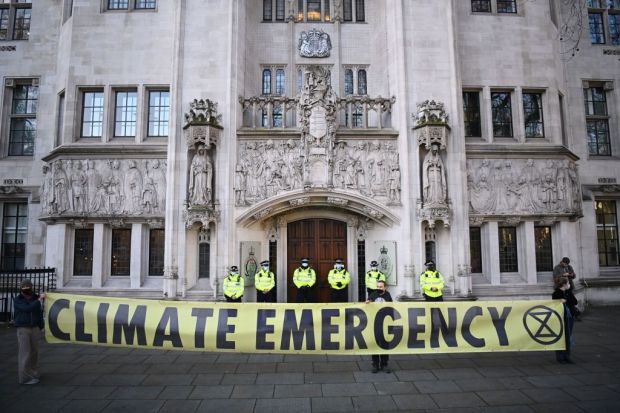We can all see that our universities are not in a good shape. They are churning out too many graduates – who probably shouldn’t have gone to university in the first place – into a difficult job market. But do those in charge of them want to do anything about it? The row over a proposed government shake-up – which could limit places to those with decent GCSE grades – suggests not.
Former fair access tsar Chris Millward led the backlash against the mooted plans. Appointed with great fanfare by Justine Greening in 2017 as the antidote to academic complacency, last weekend – freed from official obligations after he stepped down – he fired a broadside at the government. A reduction in university student numbers was not acceptable, he said: it would be a kick in the teeth to anyone who saw university as a means of furthering their life chances. Academics were equally unhappy. The ‘hard won successes in enrolling greater numbers of poorer pupils into higher education’ should not be compromised, according to Lee Major, a professor of social mobility at the university of Exeter.
So what were the proposals that kicked up such a stink? In short, the government is considering encouraging more people – particularly those who do not achieve GCSE 4 (Grade C in old money) in maths and English – to opt for technical, rather than university, education. It also wants to raise the profile of vocational courses by replacing student loans with a lifelong loan entitlement. These measures are surely a good thing: they will help to ensure universities are places for people – of all backgrounds – who would benefit from studying for a degree. They could also help spare many young people the wasted effort of studying for a degree that will unlock few doors.
For those who are clever enough who might wish to to go to university but could miss out because of where they grew up, education minister Nadhim Zahawi has also announced plans for super-schools in selected education black spots. These would be run along the lines of the London Academy of Excellence in Stratford, east London, with increased Treasury support and special payments to retain good teachers in maths and science. The Midlands and the North would be the main beneficiaries, with Cornwall and some other parts of the Southwest – often forgotten in the disadvantage stakes – also rightly included.
What’s not to like? In the world of higher education – where introspection is not a strong point – it seems there is a lot to be angry about when it comes to the new plans. The row over the future of higher education has shown all too clearly the reversal of radicals and reactionaries. On one side is an educational establishment that wants to preserve things much as they are. Its programme is aimed as much at statistical social justice as at admitting those most likely to benefit. It is also programmed to promote economic advancement rather than academic curiosity. University bigwigs are all too happy for this miserable state of affairs to continue, even if it isn’t in the best interests of students.
On the other side to the new reactionaries is the government. For once, the Tories are prepared to accept that radical change is necessary. But those who disagree will take some convincing. Academic trade body Universities UK revealed more than it intended when its chief executive Alistair Jarvis said:
‘People want their children and grandchildren to go to university. I don’t see any signs that they are reconsidering that. It is a life-changing experience.’
Well, up to a point. The trouble is that even leaving aside this curious belief that universities exist to massage parental amour propre, once you take these arguments apart they begin to look remarkably threadbare.
First, if a university is a place of self-directed learning for those interested in following a subject for its own sake, it does not seem too much to ask that a basic grasp of maths and English should be required if you want a government subsidy to attend. However bad a person’s school was – or even if their home circumstances were truly bleak – if an applicant is not prepared to take the small step of getting these qualifications, it calls into question their motivation. Surely their place should go to someone who is prepared to jump through these hoops?
Second, while poverty should not exclude from university places those ‘qualified for them by ability and attainment’ (as the Robbins report on expanding higher education put it in 1963), enrolling greater numbers of poorer pupils into higher education for the sake of it is most certainly not a good in itself. Pushing students towards university with more regard to their background than their ability and willingness to follow a subject in a spontaneous way is likely to prejudice other students. Why? Because, put simply, it diverts staff who would otherwise be supervising those more eager students. When done on a large scale, it erodes the whole idea of a university; as almost any university teacher can confirm, to avoid disaster a teaching style directed to self-directed reading and inquiry has in many colleges increasingly had to be replaced by a form of glorified sixth-form teaching.
Third, it is true that a knowledge-based economy needs more people educated beyond school. But whether it requires university-style degrees is open to rather more doubt. We can’t all be research scientists, AI whizz kids or high-flyers with MBAs. An economy where as many people working in knowledge-based fields as possible have a sound technical knowledge appropriate to the business they are in would seem to be a rather better aspiration.
Finally, is it even true that restricting those admitted to university will harm people’s life chances? Admittedly some university qualifications – in medicine or law, for instance – are very marketable. But there are growing indications that many other degrees neither impress employers nor boost earnings. Second-rate graduates from second-rate universities are hardly in short supply. But there is a lack of people well-qualified in plumbing, bricklaying or basic electronics. Measures that encourage students to seek the latter route and avoid borrowing money and spending time obtaining increasingly unmarketable diplomas are, if anything, a blessing.
Yet vice chancellors and the university blob are happy burying their heads in the sand. In doing so, they ignore the fact that universities face deep intellectual, financial and social problems, all of which have been made worse by Covid. Unfortunately, when it comes to deciding how to tackle these difficulties, it is plain to see that higher education’s worst enemy is the establishment that runs it.
Got something to add? Join the discussion and comment below.
Get 10 issues for just $10
Subscribe to The Spectator Australia today for the next 10 magazine issues, plus full online access, for just $10.


















Comments
Don't miss out
Join the conversation with other Spectator Australia readers. Subscribe to leave a comment.
SUBSCRIBEAlready a subscriber? Log in